Adventurous Schools: 10 of the Best
By
8 years ago
Independent schools challenge pupils outside the classroom, as much as inside it, and it’s so good for their confidence, says Sally Jones
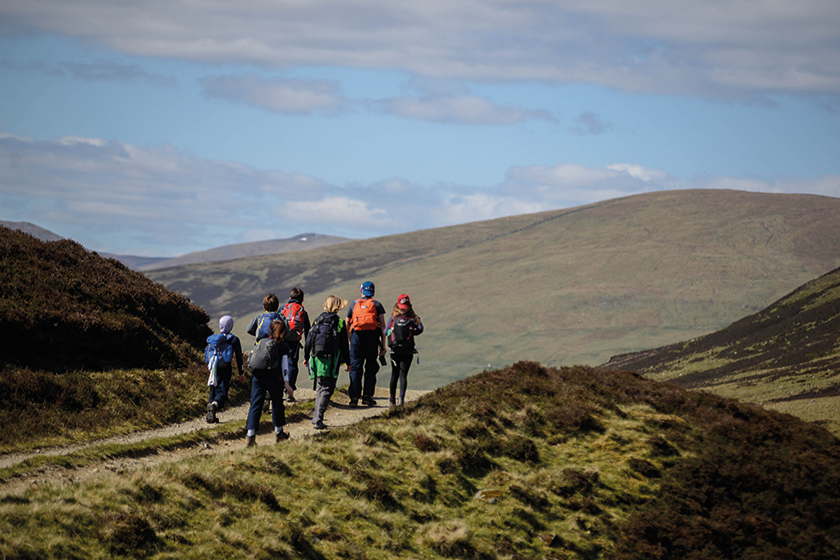
Adventurous schools offer lessons for life as they scale peaks, cross continents and reach out to different communities.

Mount Kelly
Harry Donnelly and his four-strong team from Mount Kelly at Tavistock stumble down the final stretch of moorland toward the crowded finishing line near Okehampton Camp, with rucksacks bulging and enormous smiles plastered across their muddy faces. After their demanding 55-mile trek through majestic Dartmoor landscapes and a chilly night’s camp near Postbridge to complete the toughest of the annual Ten Tors hikes, they – like their 2,000 fellow-hikers – are exhausted, blistered and aching but elated. ‘Nothing beats the feeling of crossing the finish line,’ grinned Harry, 18. ‘Exhilaration, adrenaline, exhaustion and a sense of incredible pride in the team.’
Just weeks earlier, Harry and team mates, Will Bennett and Harry Dunlop, had completed the 125-mile Devizes to Westminster Canoe Marathon. This, plus the Duke of Edinburgh Awards and three Ten Tors events, comprises the fearsome but unforgettable ‘Mount Kelly Seven’, which only the school’s fittest and most determined teenagers achieve. With Dartmoor nearby and its own adventure centre, pupils also experience abseiling, high-rope work, gorge-walking and the mud-filled ‘bog run’, designed to develop teamwork.
‘If you develop a pupil’s leadership skills, ability to think independently and self-confidence,’ insists headmaster Mark Semmence, ‘it will have a marked impact on his or her studies. It’s extraordinary to complete all these challenges while also gaining good GCSE and A-level grades.’
Mount Kelly, like many independent schools, recognises how personal qualities developed through demanding outdoor activities help shape the adults their students will become. The CCF and Duke of Edinburgh awards offer thousands of youngsters the chance to step outside their comfort zone and increasingly sedentary lifestyles, to discover more about themselves and the world outside.
Gordonstoun
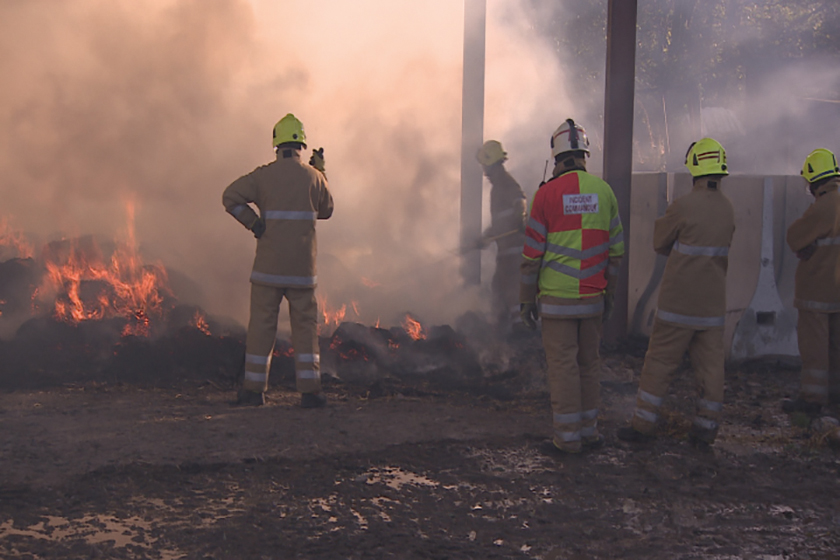
Gordonstoun Fire Brigade
Gordonstoun, alma mater of Prince Charles and the Duke of Edinburgh, whose award was launched here, is famous for such challenges and outdoor pursuits. Founded in 1934 by Kurt Hahn in the shadow of European fascism, the school aimed to develop responsible, rounded world citizens possessing enterprise, initiative, fitness and compassion, unlike other traditional public schools, designed to groom empire-builders. Although no longer the barrack-like institution of yore, Gordonstoun still encourages students to experience adventure and leadership. It is the only school with its own official fire brigade run by staff members and teenage students who undergo a nine-month training programme in all aspects of the job: knots and lines, first aid, handling pumps, ladders and hoses, before being allowed to fight fires alongside Scottish fire and rescue service crews. Previous exploits include mopping up and supporting those evacuated during severe floods in Elgin and putting out local house fires.
‘Being part of the fire section is great experience,’ says firefighter Ian, 16. ‘You feel you’re helping the community and doing a proper job. It gives you confidence and teaches you to work together, with professional crews, instructors and other students.’
From Year 11 onwards, Gordonstoun students choose one of 12 service-related activities, including coastguard, first aid, community service and technical support. With the Moray Firth on the doorstep, everyone undergoes sail training aboard the school’s picturesque cutters, Northern Light and Pole Star, in preparation for taking part in residential voyages of up to a week aboard the school’s 80-foot sail training vessel the Ocean Spirit of Moray. All boats are berthed in nearby Hopeman harbour. The teamwork required is extraordinary; it takes eight oarsmen and women to row the vessels out of harbour and the cutters’ old-fashioned dipping lug sails
have to be reset each time they go about.
Gordonstoun was a founding member of the Round Square organisation of schools embracing six ‘pillars’ or precepts: internationalism, democracy, environment, adventure, leadership and service. With over 40 different nationalities at the school, it has a strong international flavour and runs three overseas service projects each year, with Year 12 pupils working alongside deprived communities in Thailand, Ethiopia and Romania.
Felsted
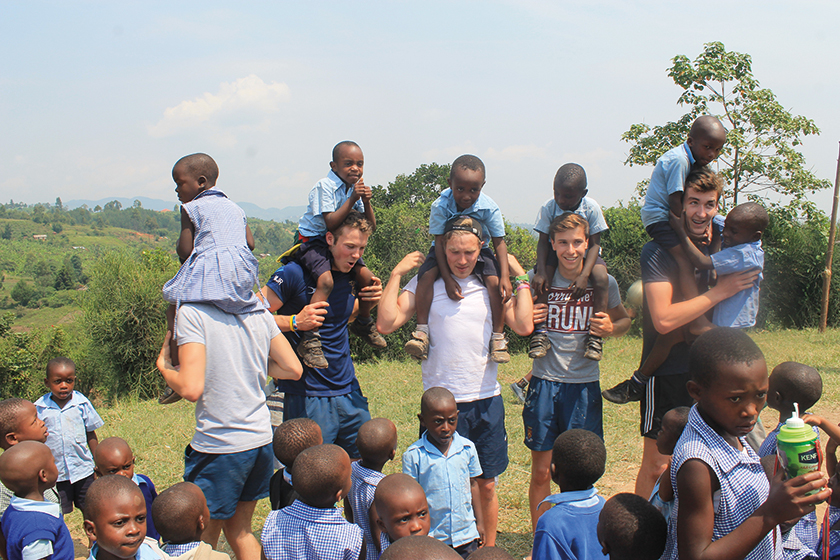
Felsted in Uganda
Felsted in Essex is another of Britain’s 12 Round Square schools and here service is key too. ‘We’ve developed close links with charities in Malawi, Uganda and Mumbai [Sparkle Malawi, Volunteer Uganda and Magic Bus],’ says Felsted’s headmaster Chris Townsend. ‘These charities give young people, who enjoy the privilege of an outstanding education, the chance to make a difference to the lives of others, but also to learn a great deal about themselves and their values.’
Students have raised £16,000 this year to support Felsted’s partner schools in Kanungu, Uganda, including nearly £9,000 to pioneer the region’s first ever science A-level course. During a recent visit, a group taught lessons, painted a classroom and forged relationships with the children, including the irrepressible Byamukama Junior, a bright boy from a deprived family, who is being sponsored through A-level biology by the school. Speaking of the trip, one Felstedian says, ‘While we feel we made a significant contribution, we also benefited enormously from the trip, making good friends with people from different backgrounds.’
Lancing College
Lancing College’s links with Malawi date back to the 1980s, when a commemorative expedition took place, honouring old boy Gino Watkins, a world-famous Arctic explorer, who died aged just 25 while kayaking in Greenland in 1932. Groups of students regularly spend a month in Malawi, working at St Anne’s Mission Hospital, the Jacaranda Children’s Home and Open Arms centre for AIDS infants, which the school supports through fundraising.
Shrewsbury School
Shrewsbury School also has a longstanding record of working in deprived areas. Parties of sixth-formers have regularly helped out at ‘The Shewsy’, a youth centre in Everton, ever since masters from the school set it up in 1903. Salopians also volunteer at the charity Medic Malawi’s eye clinic, funded by the school and the first joint group of teenagers from Shrewsbury and The Shewsy worked there together last summer, learning about each other’s very different circumstances, as well as third world medicine.
Taunton School
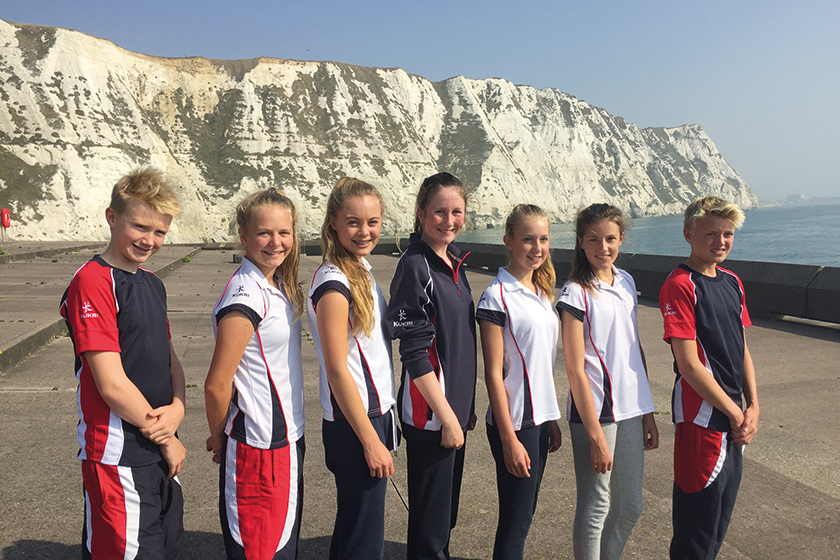
Taunton swimmers
Taunton School, too, is celebrating a character-building Channel swim, which raised £11,500 for charity. Seven 13-year-olds – five of them girls – were coached by head of geography and former soldier Hamish McCarthy. They completed the hazardous journey in under 15 hours, beating a staff team but narrowly pipped by a squad of Royal Marines.
‘They were magnificent,’ says McCarthy. ‘They gave it their all, showed selfless commitment and much courage in getting across the Channel, including nearly five hours in total darkness. To come within three minutes of beating the elite of the British Military has simply left this old soldier speechless with pride.’
Wellington College
Wellington College, also a Round Square school, is equally involved in service overseas and adventure training, through D of E awards and a large CCF, involving 400 cadets and 20 officers. New master, Julian Thomas, who trekked to the South Pole in 2015, insists that the limitations of modern life make adventure crucial: ‘At a time when children are drawn inside to computer screens,’ he says, ‘it’s vital for us all to develop a genuine passion for the outdoors. My own expeditions have shaped me as a person; the unique landscape of Antarctica has had a profound impact on me. Adventurous activities challenge us to extend our physical and mental capabilities and, without knowing it, we develop important character traits of self-reliance, teamwork, responsibility and leadership. I’ve seen children grow, mature and develop as people during school expeditions.’
One Wellington activity requiring great teamwork is Field Gun, whereby an 18-strong team transports a Victorian cannon across an obstacle course before reassembling and firing it. Gender stereotypes were swept aside this year when the leaders of both the CCF and Field Gun were girls. ‘The Field Gun gives all children the opportunity to understand that anyone can achieve anything in life, regardless of gender,’ says director of admission James Dahl. ‘Teams of boys and girls have also swum the Channel for the past three years.’
Ardvreck
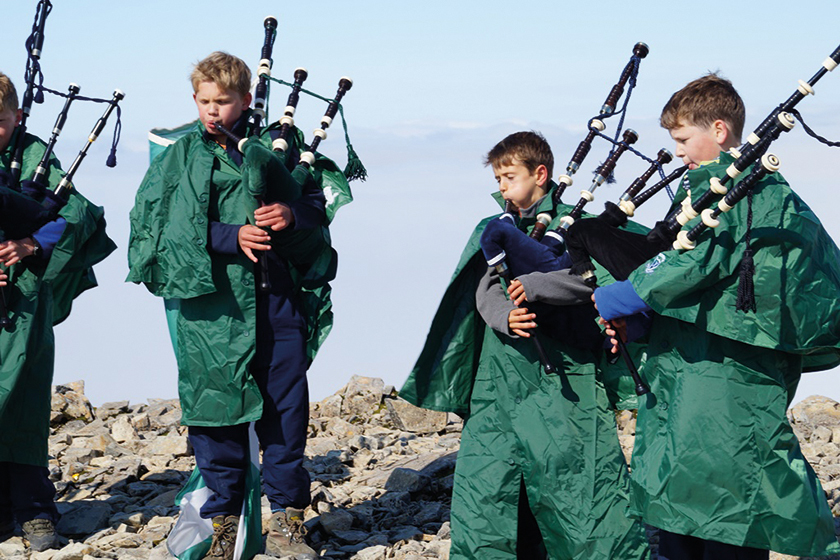
Advreck
They breed them equally tough in Scotland – and from an early age. At Ardvreck Prep, Perthshire, the entire school – pupils aged from seven to 13, parents, staff and governors – recently completed the ‘Ard Challenge’, a formidable 11-mile hike through a remote glen. Working in small groups, they undertook a series of tasks to test teamwork, tenacity, initiative, endurance and resilience, including army-style command tasks, rifle-shooting, a medical simulation, archery, den building and paintballing. In true Famous Five style, the day culminated with an enormous bonfire and feast on the shores of Loch Tay, no doubt with lashings of ginger beer.
Eleven members of the school’s pipe band went further (and higher), climbing Ben Nevis, while carrying their own pipes and drums to play two sets on the summit. ‘Ben Nevis is a significant climb for adults,’ says mountain leader Mike Jeffers. ‘It’s particularly impressive for ten to 12-year-olds carrying their own instruments and performing on the summit. I have huge respect for their determination, skill and willingness to face a challenge: a great experience for all concerned.’
Malvern College
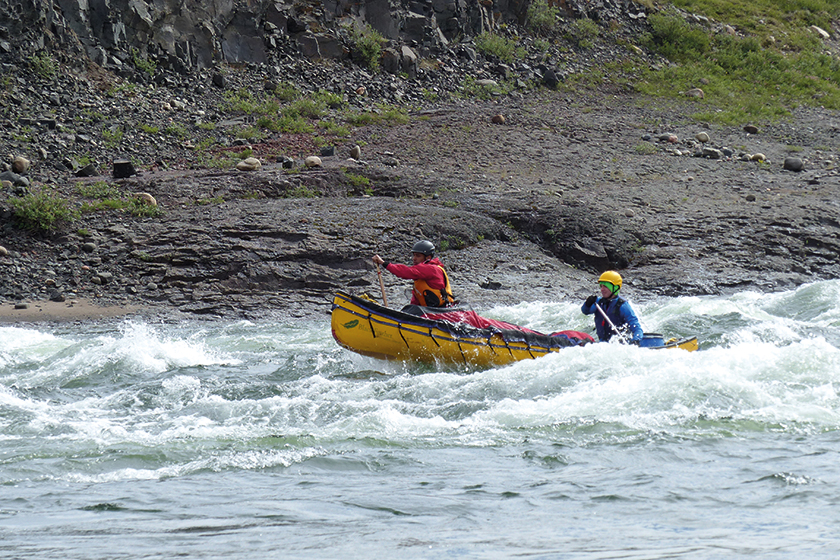
Malvern College kayaking
On Malvern College’s 150th anniversary, a group of students achieved a comparable feat of endurance, kayaking down the freezing Coppermine River out into the Canadian Arctic, the only British school to undertake the expedition. The pupils were even briefed beforehand by Prince Andrew who had done the trip while at school in Canada. With its spectacular backdrop of the Malvern Hills, the school has the perfect setting for outdoor pursuits, as does Clifton College with the dramatic Avon Gorge, nearby Mendip Hills and Symonds Yat, where students learn climbing, trekking and abseiling. It boasts its own bunkhouse in the Brecon Beacons for outdoor pursuits and is one of the only schools in Britain offering hovercraft pilots licence courses to CCF Navy cadets.
King Edward VI High School
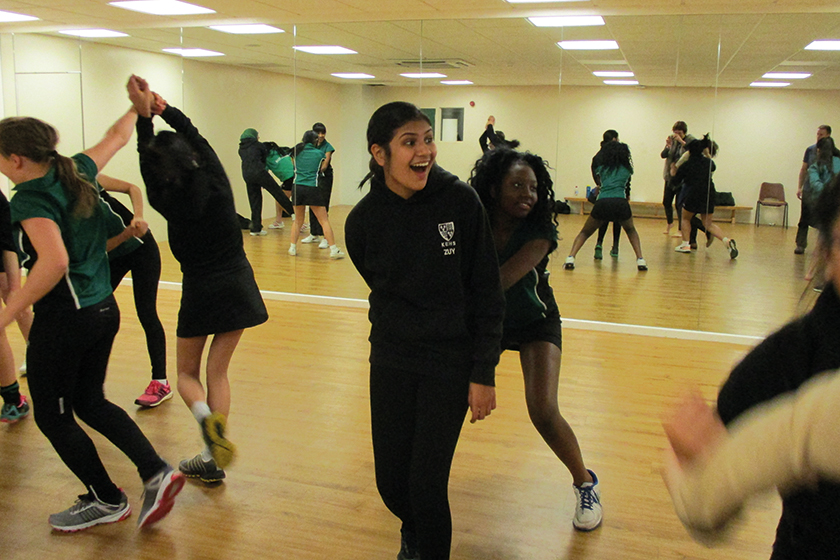
The downside of challenge and adventure is occasional danger, whether bad weather, injury, illness or even the possibility of attack. Scores of girls from King Edward VI High School, Birmingham, undertake tough Duke of Edinburgh treks each year and sports tours to exotic locations from Fiji to South Africa. Head of Maths, Harry Kavanagh, a keen sportsman, runs eight-week sessions teaching the powerful Israeli self-defence technique Krav Maga, to groups of Year 9s. Despite gales of giggles, the girls are soon reacting aggressively to robbery-style attacks, twisting their bodies explosively to force the assailant against a wall, shouting to unnerve the attacker. ‘Make it more aggressive. Really bellow… then sprint for the exit!’ says Kavanagh.
‘It was quite scary, fending off attackers in darkness,’ says 14-year-old Noemi, ‘but I feel much more confident that I could do it for real, and how to avoid trouble in the first place: like keeping your ponytail tucked down your jacket so it can’t be grabbed and throwing your purse or phone well away from you, so you can escape while the thief’s confused.’
Christ College
So what is the ultimate benefit of all this service and adventure? For Captain Rhion Johnston – who leads CCF expeditions and trains cadets from Christ College, Brecon, in live firing with semi-automatic rifles on the Army’s Sennybridge firing ranges in the Brecon Beacons – it’s all about self-belief. ‘We’re only a small school of 400 children but there’s a great spirit of camaraderie and community,’ she says. ‘We take them out of their comfort zones, teach them to push themselves and tackle something they find hard and uncomfortable, maybe getting cold and wet on a long trek or selflessly undertaking a demanding activity for the greater good of the team.
‘Afterwards, they feel such a sense of achievement. They walk as if they’re two feet taller and feel that if they put their mind to do something, they could definitely do it.’



